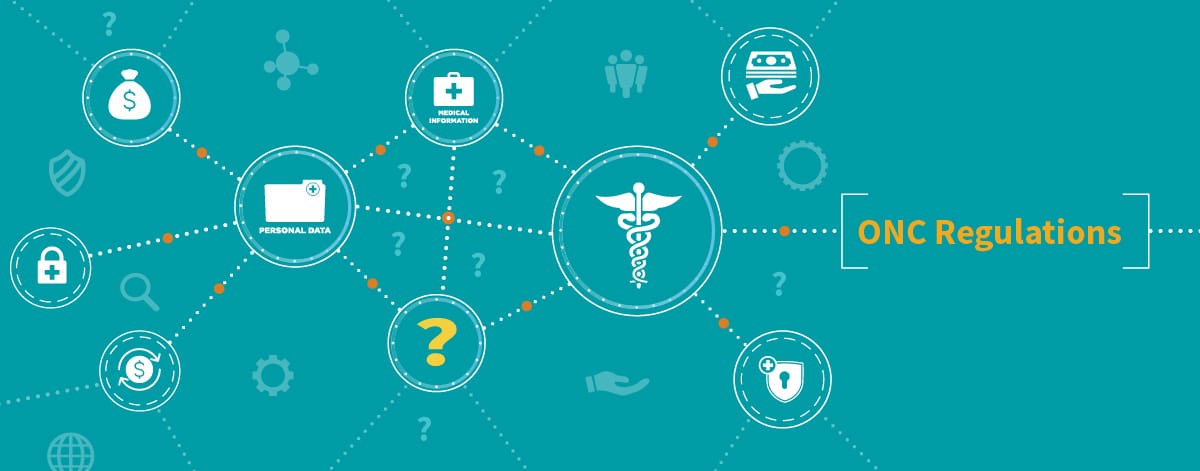Proposed Interoperability Rules Receive Unreserved Endorsement from Past Policymakers
Health Affairs published a blog post yesterday, penned by each of the former National Coordinators for Health IT. They offer unanimous and unreserved bipartisan support for the ONC and CMS’ proposed health IT interoperability rules. Their unified show of support delivers a significant counterweight to comments made by influential industry groups, which recommend a longer window to implement the rules or completely different approaches.
Here is a highlight of the comments made the former health IT policy leaders:
- Rapid advancement of APIs enabled by data standards is critical.
- Open APIs have been safely and effectively deployed in other industries, including financial services, energy and retail consumer services.
- HL7 FHIR is an appropriate foundational standard for open APIs in healthcare.
- Efforts to further advance this standard is critical.
- Regulators did well to include clinical notes and their provenance as data elements in the U.S. Core Data for Interoperability, so that they can be included in the first set of required open API standards.
- Real world testing of open APIs will be a critical implementation step for the safe and effective adoption of open APIs in healthcare.
- Expansion of the interoperability and API framework to health plans is game-changing.
- Including health plans in the shift to interoperability will make it easier for clinical and administrative information to travel with patients when they change between health plans and providers.
- ONC and CMS should work with health plans to develop a framework so that open APIs can be implemented by health plans in a feasible and timely way.
- Medicare’s conditions of participation are a powerful tool to help drive interoperability and exchange.
- Revising the CMS Conditions of Participation (CoPs) will advance the goals of the Cures Act.
- This change sets the expectation that CMS will require a foundational exchange of health information from its contracted providers.
- Requiring open APIs for electronic patient notifications is a good starting point for the CoPs.
- CMS should consider creating a process that is similar to the one performed by Health IT Advisory Committee, so that minimum interoperability requirements for contracted providers can expand over time.
- Information blocking provisions and strong compliance mechanisms are essential.
- Exceptions for permissible information blocking make sense in general, but more guidance will be needed to help those acting in good faith from unwittingly violating the rules.
- Creating a mechanism for participants to seek additional guidance (through advisory opinions, for example) would help participants navigate the new regulations.
- Going after pricing practices that have unfairly impeded information flows makes sense in principle. At the same time, flexibility is needed to accommodate innovative business models and applications that are inspired from the rules. The development and implementation costs for these innovations have not been tested yet.
- A new privacy framework should be developed in parallel with implementation of the proposed interoperability rules to protect consumers.
- CMS and the ONC should work with other relevant agencies and departments (such as the HHS Office of Civil Rights and the Federal Trade Commission) and private-sector colleagues to develop a new privacy framework that protects consumer privacy when their health information is shared with third party apps.
- (Aperture Law Group submitted a comment that aligns with this recommendation.)
- Resources for robust stakeholder education and continuing to foster alignment with related regulations are important.
- Educating stakeholders – including payers, providers, health tech firms, consumer advocacy organizations, patients and others – about the regulations will be critical for their success.
- ONC and CMS should invest in and plan for this education.
- The ONC’s proposed regulations for the trusted exchange framework and CMS’ efforts to improve patient matching (for example, with a cross-CMS patient identifier) will contribute to whether the proposed regulations achieve their objectives.
The ONC and CMS could publish final rules by year-end. In whatever form they take, the rules will fundamentally alter enterprise priorities across the ecosystem, lead to new procurements and disrupt existing business models. If you haven’t looked closely at the proposed rules yet or considered their impact on your business, Aperture Law Group can help. To learn more, contact me at jdegraff@ApertureLaw.Group.

